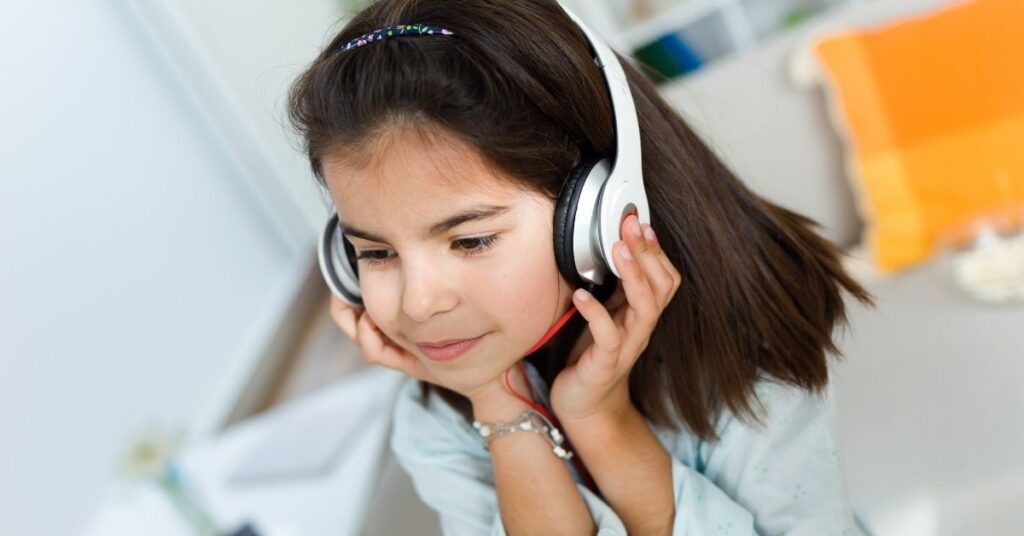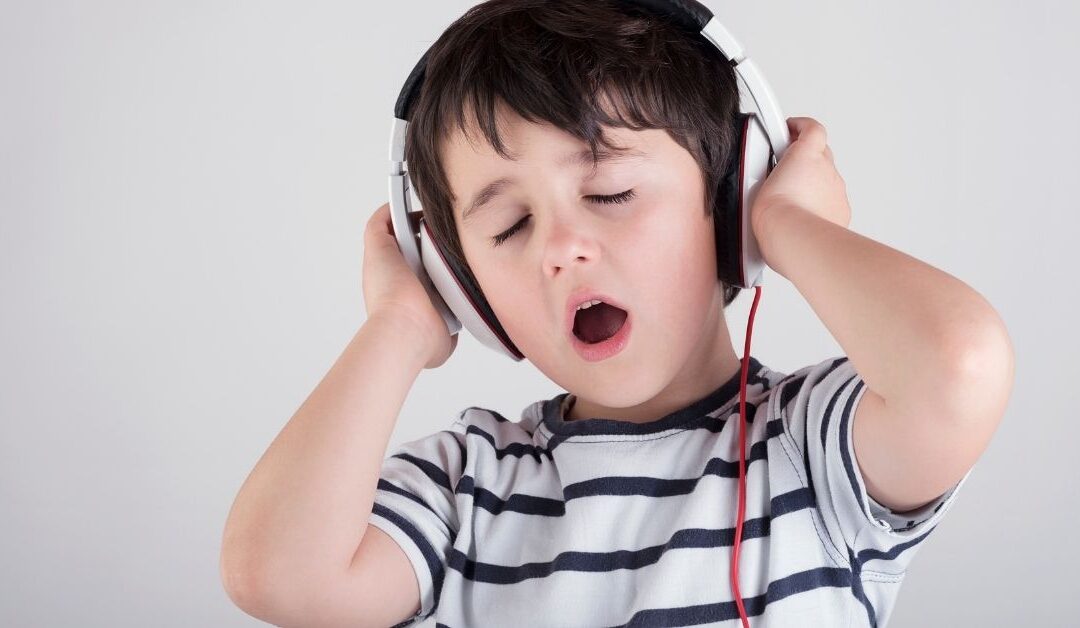Music can help us in so many ways. It can motivate us, cheer us up, soothe us and provide enjoyment. For an autistic child, music can help them better understand and process emotions.
People with autism struggle with understanding social cues and emotions from other people. Yet, research has shown that they can better understand emotions through music. Why? Neuroscientists from several academic institutions are trying to figure out the cause through neuroimaging. While studies have shown how music shows behavior response to music, neuroscientists are evaluating the brain to determine which areas of an autistic person’s brain most responds to music and how it relates to emotions. For example, non-verbal children with autism respond to emotions through music when they may not through other means.

Why do autistic children respond positively to music?
Music is universal and doesn’t require translation. Many autistic children are fascinated with music. Some enjoy the rhythmic qualities of the music while others are more drawn to the harmonies and melodies. Some still enjoy learning to play specific instruments. Others find comfort in the lyrics and repeating songs over and over.
Research shows music offers unique ways for processing perception, rewards and emotions as well as physiological reactions and neural circuitry in those with autism. Autistic children thrive on structure and routine. Music offers its own structure – especially for emotion – for autistic children. Music can be a way for autistic children to channel their own emotions. It also can help calm them down when their emotions are too high.
If children can better understand emotion through music, that can lead to improved communications skills. For example, they can better connect with others through listening to music together through a shared experience.
In his book “Speaking for Ourselves: Conversations on Life, Music, and Autism,” (affiliate link) Michael Bakan, an ethnomusicology professor at Florida State University, interviewed 10 autistic adults for whom music is a fundamental part of their world and discussed how they experience music and why is it important. He writes about how music has helped them with communications, social interactions and the process of emotions and input from the world around them. In addition, he developed the Music-Play Project with his colleagues from the Autism Institute at Florida State University to help children with autism use music to create a unique therapeutic environment for them. The project has shown that music improves emotion regulation, social interaction and creativity in autistic children.
Doing music well
Many autistic children enjoy music because they tend to do well at it. In fact, research has shown that musical perception and abilities are strengths of those with autism. Some studies have indicated that children with autism may have more musical skills such as song memory recall, musical pitch perception, and emotional identity than neurotypical children.
Our son J has amazing pitch sensitivity. He can hear a note and almost instantly know what it is. He has loved music since he was a baby, and even now in his mid-teens he can listen to music for hours. J took piano lessons for a while in elementary school, and he still enjoys playing his keyboard. Because he is good at music, it gives him confidence. He had music therapy for several years, and it really helped him cope with anxiety.
Other benefits of music
Music offers so many other benefits for autistic children. Those include:
- Provides comfort and security
- Improves social interactions
- Helps to develop self-awareness
- Boosts self-confidence through a learning experience and encourages them to try new experiences
- Can be ritualistic, which can help autistic children thrive (e.g., the song structure remains the same, so the child can rely on it)
- Helps children focus for longer periods of time
- Builds musical successes by learning an instrument, repeatedly listening or singing a favorite song, achieving new sounds with instruments and even dancing
- Helps autistic children cope with their anxiety by lowering heart rate, reducing cortisol, and decreasing blood pressure and stress levels.
When music doesn’t help
Not all autistic children enjoy music. Some may find it over-stimulating. Children with overly sensitive hearing may not like certain tones and sounds. This is called auditory defensiveness. When your child cannot be around music, it can interfere with life because your child may not be willing to participate in certain school and other events that include loud music, and the family cannot listen to music in home or vehicle. Fortunately, a music therapist may be able to help desensitize auditory defensiveness.

Could music therapy benefit my child?
According to the American Music Therapy Association, “music therapy is the clinical and evidence-based use of music interventions to accomplish individualized goals within a therapeutic relationship by a credentialed professional who has completed an approved music therapy program. It is a well-established allied health profession that uses music therapeutically to address behavioral, social, psychological, communicative, physical, sensory-motor, and/or cognitive functioning.”
Music therapists create individual goals and plans for each child based on what skills need to be improved for an optimum quality of life. It has shown to benefit autistic children in many ways, including strengthening connections in the brain, improving communication and social skills, reducing anxiety, improving body coordination and more. For more information about music therapy’s benefits, check out this blog post.
Music is an important part of many of our lives, and that is true for your autistic child too. As parents, we can look for ways to bring music into everyday activities and encourage our children to listen to and even play music.
Has music played an important role in your child’s life? If so, how? Leave a comment so that we can share and encourage each other on this journey.








